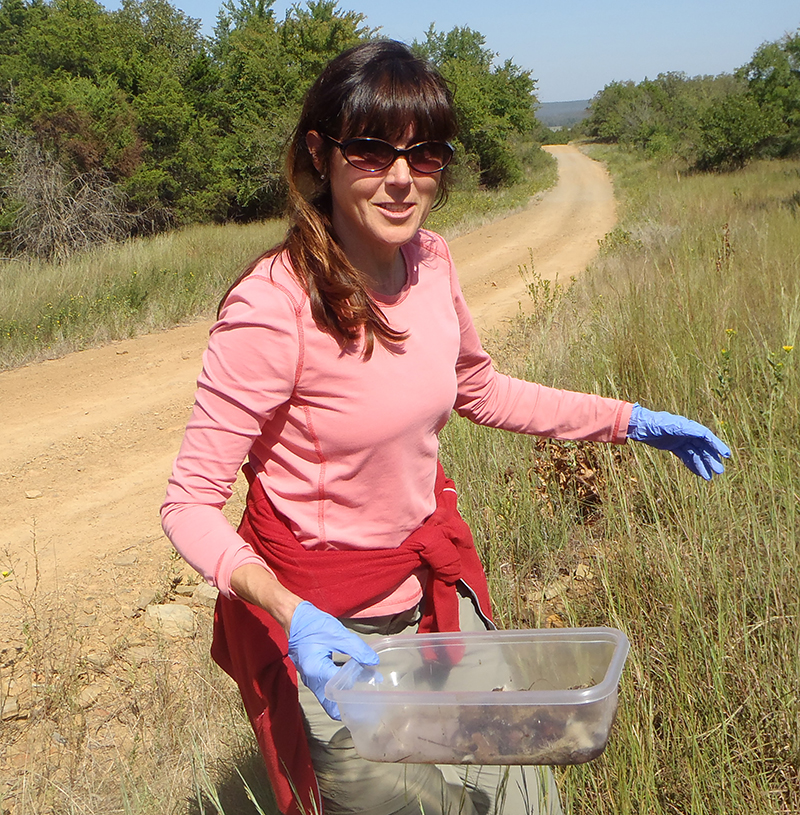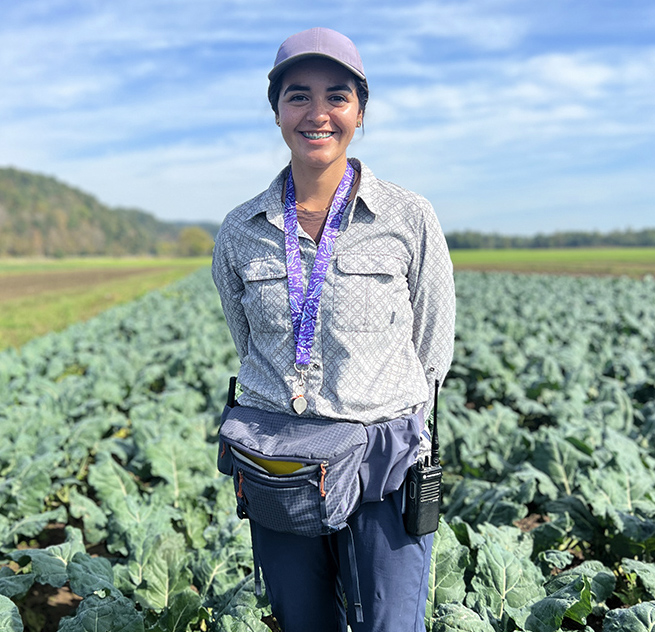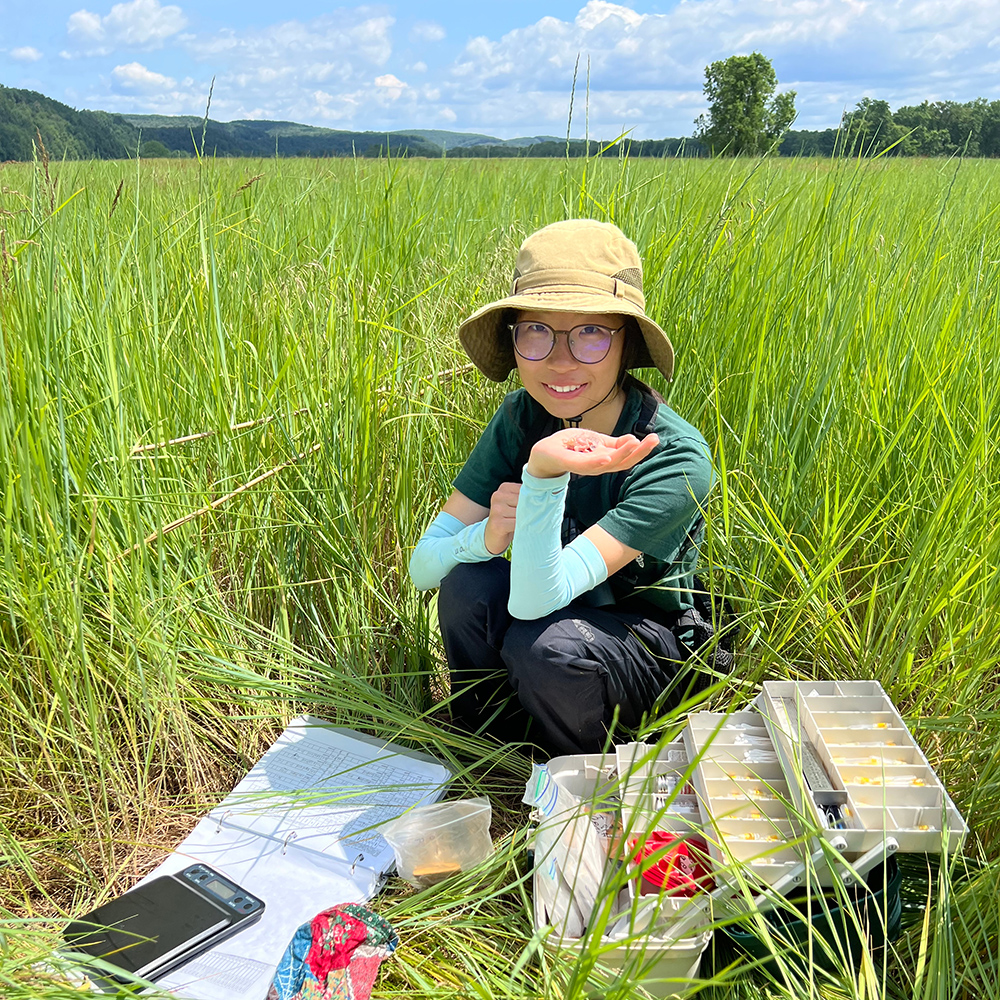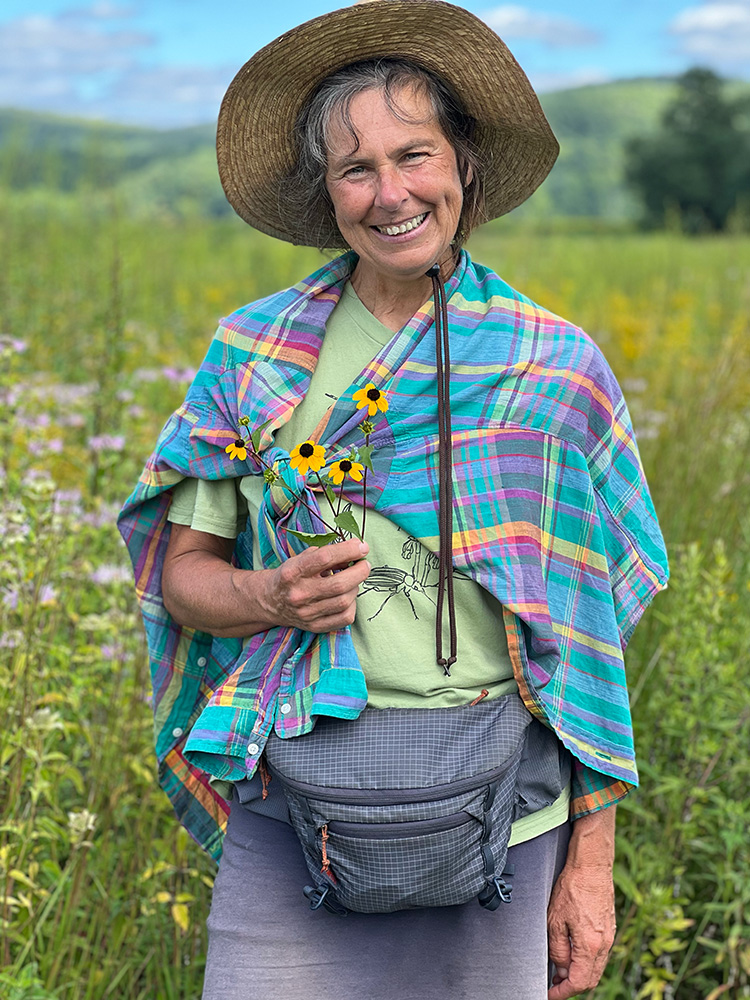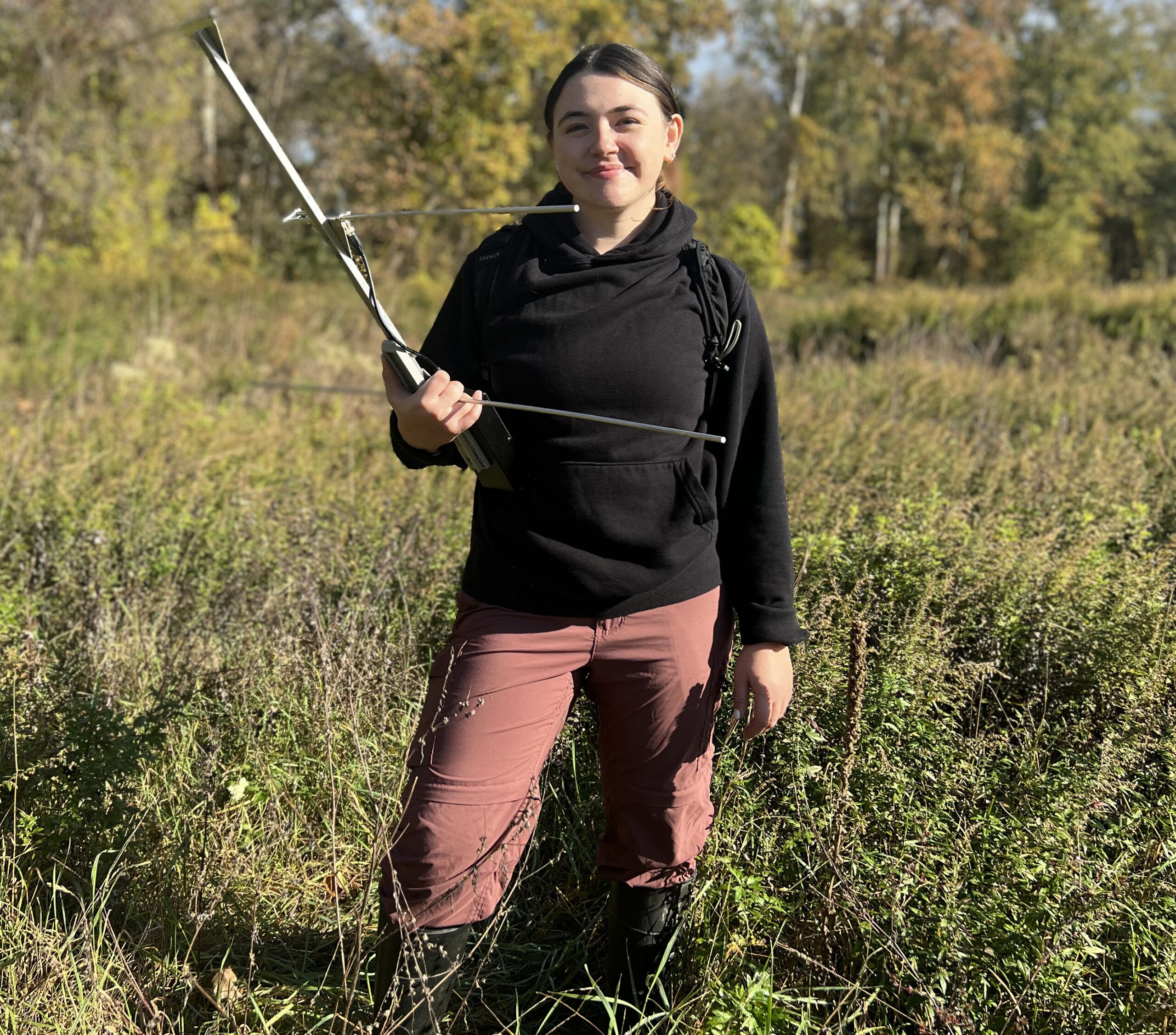Shannon Ryan
Connecting Plants and Soil: A young researcher seeks to help small farmers
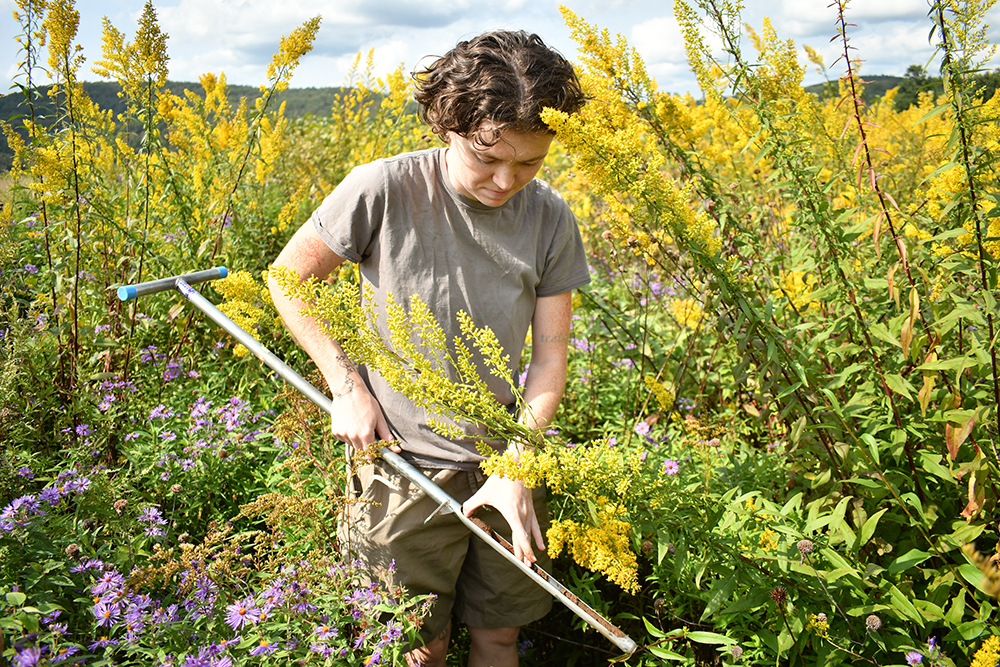
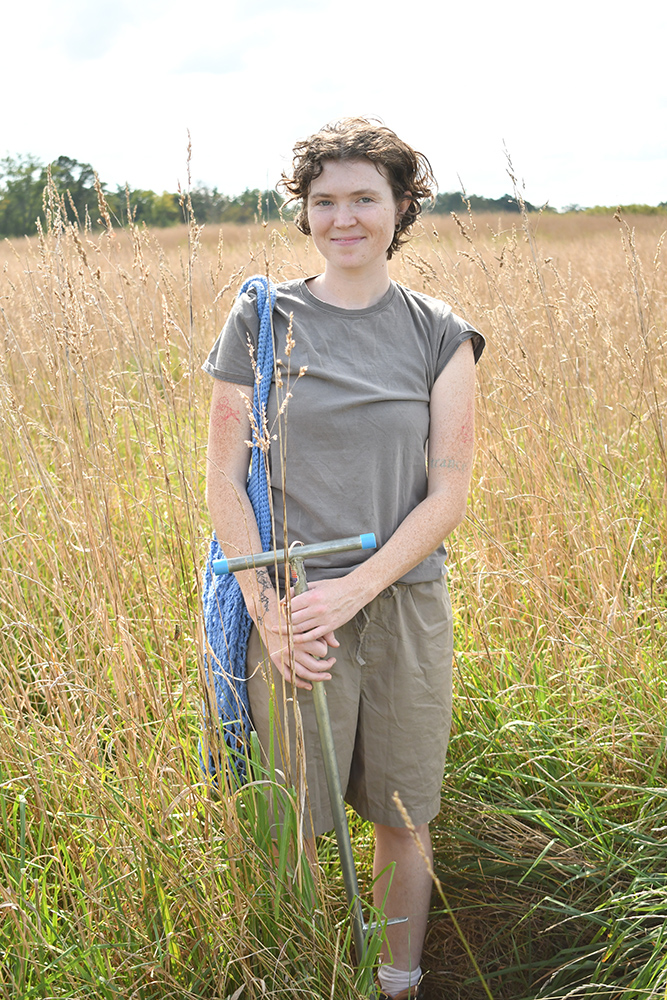
Shannon Ryan
Research assistant to Gabriel Perron at Bard College and research assistant to Peter Groffman at the Cary Institute
Shannon Ryan has always felt connected with the outdoors. Growing up in an “outdoorsy family” in Middletown, NY there was a sprawling yard perfect for exploration where “my Dad would take us into the woods to look for snakes and look for frogs and all sorts of stuff,” she recalls. The family also went on frequent boating trips.
In high school she found a passion for writing and was involved with political clubs. “I wanted to be a politician. I wanted to be presenting and writing and I was good at English, but I really was good at science–it just came easily for me,” she says, noting that science classes were a favorite.
Watching great people do what you love is a good way to start learning how to do it yourself.
- Amy Poehler
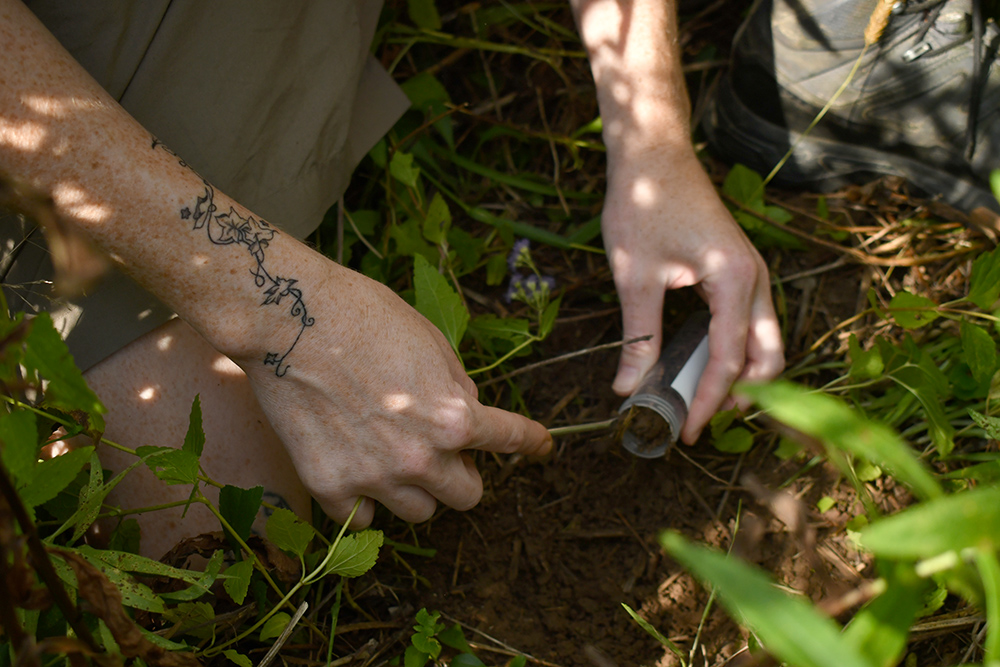
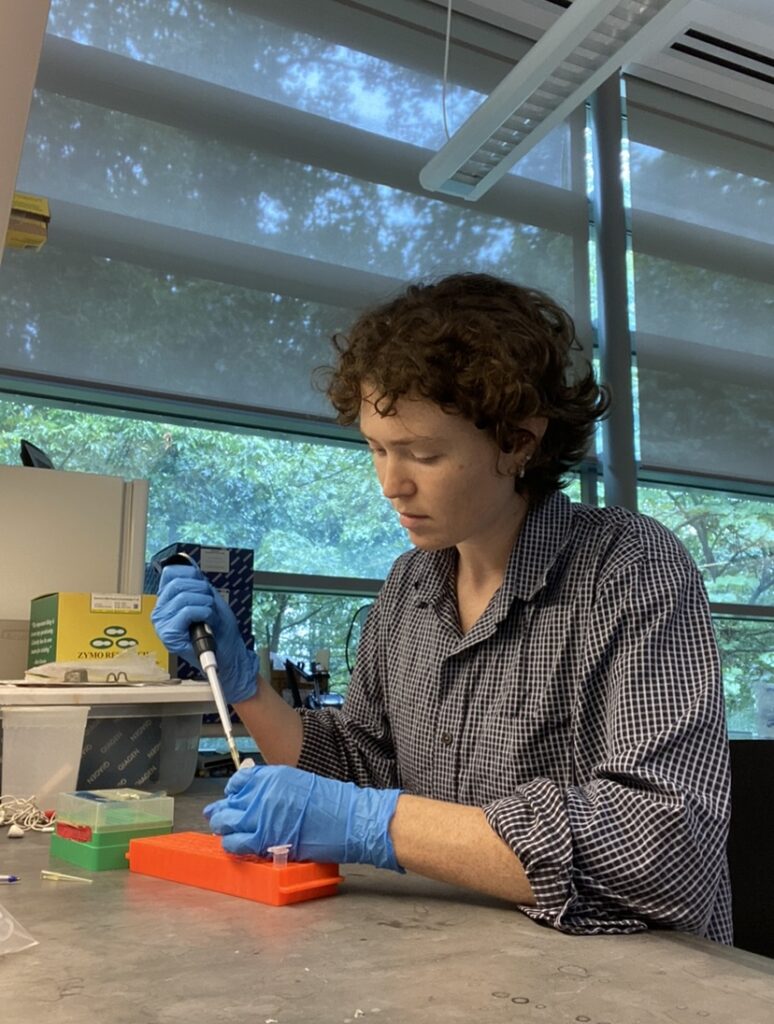
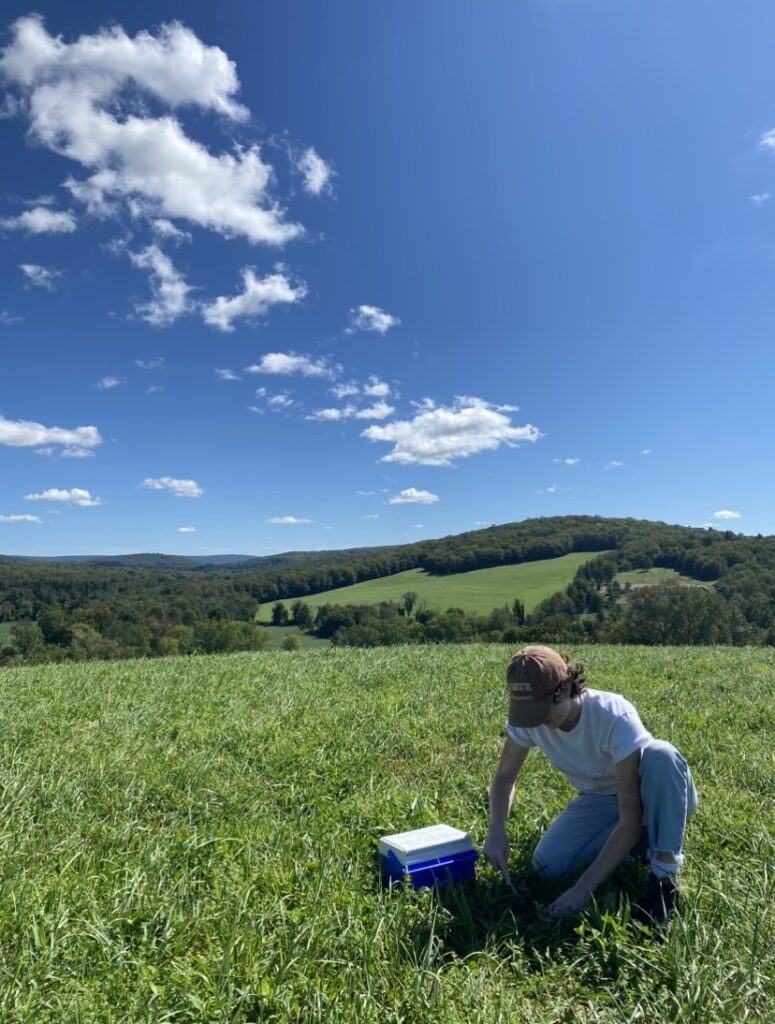
Top right, examining the DNA extraction process for soil samples. In the sterile setting of the Bard Biology Lab, Ryan uses various solutions and filters to break down and filter out soil particles to isolate the DNA present in the sample. Bottom right, sampling soil at Sky High Farm in Pine Plains NY. The site was one of many in a study to better understand the microbiome of different soils across the farm. The sampling process is simple, involving only a spoon, a sterile sample tube, and a cooler to preserve the microbial communities in the soil.
The first in her family to attend college (her father was a machinist and her mother a waitress), Ryan earned a scholarship to Bard College. By sophomore year she found that she missed taking science classes, so she enrolled in microbiology. That’s when she met Gabriel Perron, an associate professor of biology, and Elias Dueker, an associate professor of environmental and urban studies, both whom she credits with inspiring her to explore opportunities in researching soil microbes.
Ryan continues: “The classes with Gabriel helped me to understand that I was very interested in plants and farming. And once I started learning about soil microbes, I realized that the growth of plants and agriculture are dependent on microbes.” As a lab intern with Perron, her interest in the connections between plants and soil deepened.
“I’m very interested in how plants and soil microbes interact or react to one another or kind of communicate (sometimes) in a weird way. Plants have evolved to read microbial signals that are meant for other microbes, but plants kind of intercept them and understand them and sort of react to them, which is cool and interesting,” she says.
One of her first jobs after graduating from Bard was working at Tiny Hearts Flower Farm in the Hudson Valley as the harvest manager. When not harvesting flowers she worked on a self-designed soil remediation project on the farm, using vermicomposting systems to recycle and remove pathogens from soil.
"Working at the farm and seeing how important soil science can be to farmers encouraged me to begin working in research."
“Missing science” also led her to call Perron and Peter Groffman, a soil ecologist at the Cary Institute, about opportunities. The timing was perfect in that both scientists had just received funding and were able to hire her as a research assistant at their respective organizations.
Through the work with Perron – a member of the Applied Farmscape Ecology Research Collaborative (AFERC) – she has focused on environmental genomics and has been engaged on several projects at the Farm Hub. These include soil sampling and examining microbial results for the Native Meadow Trial project.
“It has been amazing to have a crew of scientists that come from different backgrounds and focus on different things,” she says.
Bottom right, in the Fall of 2020 Ryan soil samples at Bard Farm for her senior project where she studied the effects of the bacterial communication molecule C6-HSL on the growth and pathogenic resistance of arugula. Top right, conducting fieldwork for an assessment of microbial “bait sticks,” plastic strips loaded with nutrients used to measure microbial activity in soils. Select photos provided by Shannon Ryan.
Looking ahead, she hopes to design her own research experiments. To do so Ryan knows that an advanced degree will empower her to pursue more research funding. In August she starts her Ph.D. at Penn State with a focus on ecology. The decision was, in part, inspired by her time working with farmers in the Hudson Valley.
“I think when you’re looking at practical questions that maybe a farmer has, it is more about interactions between things, between microbes and plants, or plants and bugs, and it’s understanding the ecosystem as a whole,” she says. “I want a better understanding of that so I can be as helpful I can to farmers.”
Having grown up in the Hudson Valley, she hopes to ultimately return to the area to work as a research scientist with the goal of helping farmers.
“I think the Hudson Valley is a unique place to study agriculture because there are so many small farms where you can work directly with the farmer, and the farms here are a lot of the times surrounded by nature. Here we can look at the interactions between nature and agriculture and I’m really interested in that,” she says.
Q & A with Shannon
Read the full interview with Ryan. The interview was conducted in 2023 and early 2024 and has been edited for length and clarity.
At the Farm Hub, The Perron Lab (run by Gabriel Perron, a professor at Bard College) at Bard College has various ongoing projects investigating the relationship between agricultural management practices and soil microbial diversity and antibiotic resistance. We are currently finalizing our work in collaboration with Claudia Knab-Vispo and Conrad Vispo for the Native Meadow Trial at the Farm Hub. Our lab has collected soil samples from the experimental plots for the past four years, and we are currently working on a cumulative metagenomic analysis to assess the effect different native perennial seed mixes have on the soil microbiome.
I work as a research assistant in the Perron Lab and the Groffman Lab at The Cary Institute of Ecosystem Studies and I study soil microbiology in agricultural systems and forests. Much of my work in the Perron Lab is concerned with the ways agricultural practices affect the soil microbiome, while my work in the Groffman Lab is more focused on how changes in weather patterns caused by climate change affect microbial processes and gas exchange between soil and air.
I intended to be a political science major because I was interested in climate politics and environmental justice, but in the end, I felt more drawn to the science side of things. Because of my interest in environmental justice, my studies mostly revolved around issues of contamination in water, air, and soil, which in turn led me to study bacteria and fungi. Through studying microbes, I hope to bring relevant, quality science to communities that can use it to better their way of living and working. In my work after graduating from Bard I’ve found that many local farmers are interested in gaining a better understanding of their soil microbiome and how they can better their soil to better their crop. I hope to continue investigating questions the community cares about.
I became interested in agriculture and soil science while studying at Bard and began working at Tiny Hearts Farm (a flower farm in the Hudson Valley) after graduating. The farmer I worked for, Jenny, was interested in soil science and even let me start my own soil remediation project on the farm, using vermicomposting systems to recycle and remove pathogens from soil. Working at the farm and seeing how important soil science can be to farmers encouraged me to begin working in research. I had worked on Farm Hub projects with Gabriel (Perron) in college, so it was easy for me to slip back into the role.
What excites me most about my job is the opportunity to connect with farmers and the community. The Farm Hub creates a great space for open conversation between farmers, researchers, and community members to ensure that the science being done is relevant and communicated to the people who it affects most. I think this open flow of ideas between professions is what’s most important to me.
I know that farmers are interested in the soil microbiome, and I know that soil analysis can be very expensive and time consuming and as a farmer you might not just have time to play around with the soil. I would love to serve design projects with farmers to address what they’re curious about and have them have input in projects to create a bridge between science and agriculture in that way.
I think creating a welcoming space for scientists that are often left out of the conversation, such as women and minorities, would include creating innovative ways to share resources, creating spaces for open and friendly conversation, and intentionally raising voices and shifting the spotlight from those who already often receive it. In my own experience as a queer woman in science, meeting others like me has been really reassuring and encouraging. I think reaching out to others is important, even if it’s just for casual conversation. It can really help to make the field less intimidating. Go to lectures and talks, try to meet others interested in your field. People are often a lot more willing to share resources and advice than you think.
My advice would be to reach out to people studying what you’re interested in. I feel that I’ve gotten most of my opportunities through just telling people what my goals are. That way, when people hear of an opportunity that aligns with my goals, they let me know about it.

